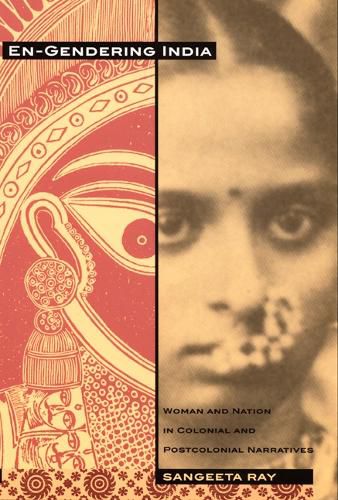En-Gendering India: Woman and Nation in Colonial and Postcolonial Narratives
Sangeeta Ray

En-Gendering India: Woman and Nation in Colonial and Postcolonial Narratives
Sangeeta Ray
An interpretation of the role that gender played in defining the Indian state during both the colonial and postcolonial eras. Focusing on both British and Indian literary texts - primarily novels - produced between 1857 and 1947, Sangeeta Ray examines representations of native Indian women and shows how these representations were deployed to advance notions of Indian self-rule as well as to defend British imperialism. Through her readings of works by writers including Bankimchandra Chatterjee, Rabindranath Tagore, Harriet Martineau, Flora Annie Steel, Anita Desai and Bapsi Sidhaa, Ray demonstrates that Indian women were presented as upper-class and Hindu, an idealisation that paradoxically served the needs of both colonial and nationalist discourses. The Indian nation’s goal of self-rule was expected to enable women’s full participation in private and public life. On the other hand, British colonial officials rendered themselves the protectors of passive Indian women against their savage male countrymen. Ray shows how the native woman thus became a symbol for both an incipient Indian nation and a fading British Empire. In addition, she reveals how the figure of the upper-class woman created divisions with the nationalist movement itself by underscoring caste, communal and religious differences within the newly-emerging state.
This item is not currently in-stock. It can be ordered online and is expected to ship in approx 4 weeks
Our stock data is updated periodically, and availability may change throughout the day for in-demand items. Please call the relevant shop for the most current stock information. Prices are subject to change without notice.
Sign in or become a Readings Member to add this title to a wishlist.


